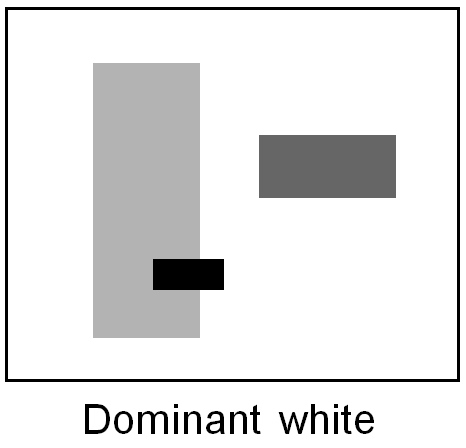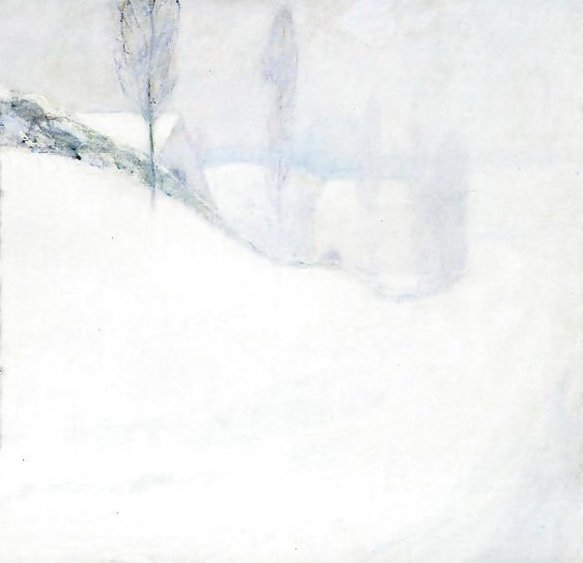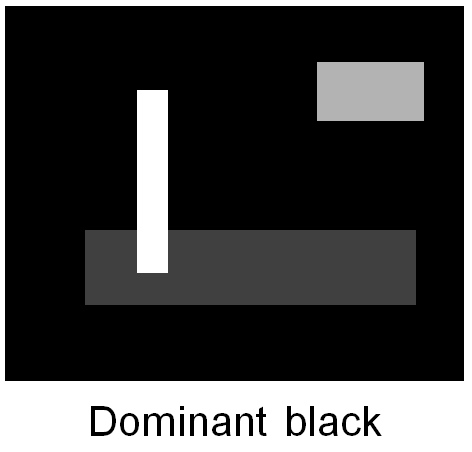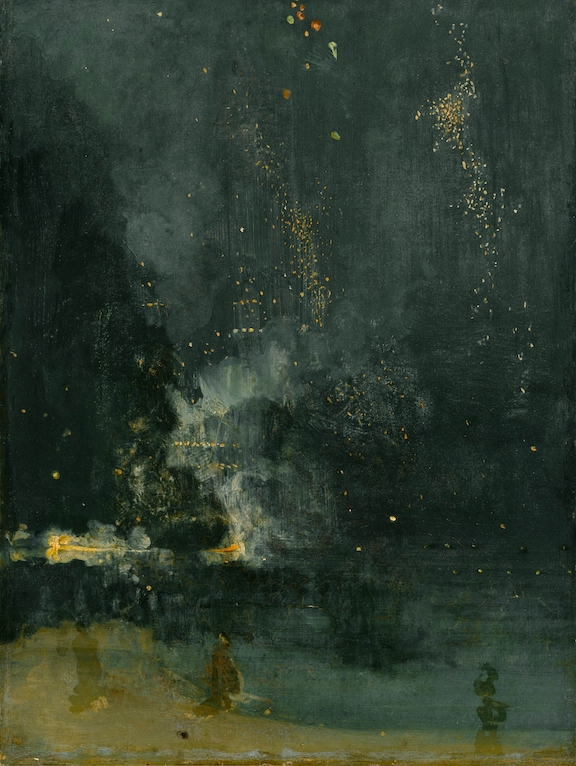How to use dominant value in paintings
One thing that I have discovered is that most masterpieces have a clearly dominant value in painting. By ‘dominant value’ I mean a single value that takes up more than 50% of the painting. This dominant value can be any value; dark, light, or middle value – it does not matter which value it is, as long as you do have one dominant value. Take a look at some of your paintings in black and white (or shades of gray). Do you have equal amounts of each value? If so you may have a problem.
The foundation of most good artwork is their value or notan structure (notan is the dark/light value pattern in your painting, and is a very important topic that I have written a lot about in the Apprentice Program lessons). In many master paintings I have found that it is the middle value that is the dominant value. There is a reason for this that has to do with color saturation.
Dominant white/light

One exception to this middle value ‘rule’ is high key paintings, like many impressionist paintings such as those by Benson, Twachtman, and some of Monet’s paintings. These works often have a dominant light value.

Dominant black/dark

Another exception is nocturnes (paintings of scenes at night or late dusk), which have a dominant dark value. Whistler painted a lot of night scenes.

Often there is a sub-dominant value as well. The subdominant value is the value that takes up the second most area in the painting. In these paintings, the third value (in a three-value structure) could be thought of as an ‘accent value. That is just a small patch to add interest to the painting, and keep the viewer’s eye moving around the picture surface.
Here is a tip if you have problems thinking about this. Try breaking up the space in the same proportions as the golden section. Use 60% for the middle value, 25% for the light or the dark, and 15% for the remaining light or dark value.
Dominant gray

In the painting “A Day at Carmel Beach”, you can see that the dominant value is gray, with a few accents of darks and lights.
To learn more about dominant values in painting
To learn more about notan and dominant value in painting, and why all great artists flatten their values, and design interesting negative shapes as well as positive shapes, see Notan lessons in our Virtual Art Academy® Apprentice Program.

Oh yes! I have a notarized app that I use before I ain’t with my sketches. A great tool. Thanks.
This is a great tip . Thankyiu
Along with dominant value, then, there may be a dominant chroma as well. This, could it be that a painting with a dominant value may be in combination with a dominant chroma– for example, high value/grey or high value/bright?
It may be beneficial to have a dominant chroma in any one painting, but there does not necessarily have to be any correspondence between the shapes that are dominant in the notan structure and the shapes that are dominant in the chroma structure. Also quite often in paintings, the dominant chroma is usually low, or low and middle, with a few high chroma shapes for accents. Fauvist style paintings may have a dominant high chroma, but that does not need to match with the dominant value in the notan structure. They are two independent abstract qualities of a painting. Hope that helps a bit.
I am self taught, and have been painting professionally over 50 years. This is a totally bright light in my way of thinking about distribution of values. Thank you
SUPER
Where can I find a notorized app
You can find it by going to your app store and typing “notanizer” in the search box
Barry